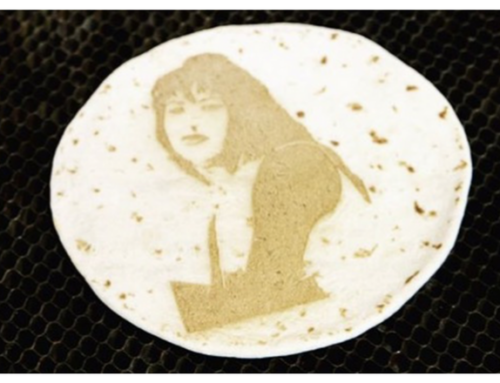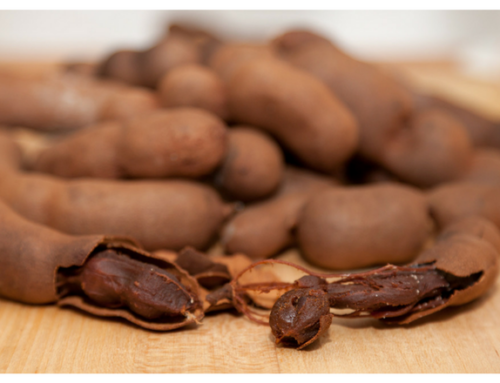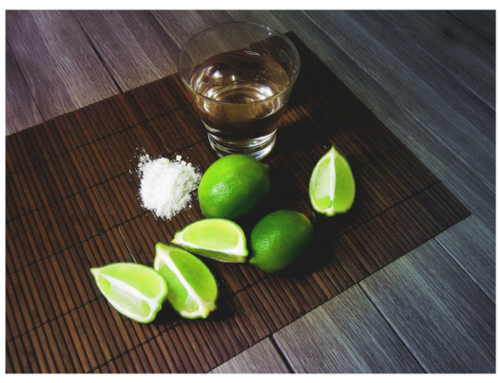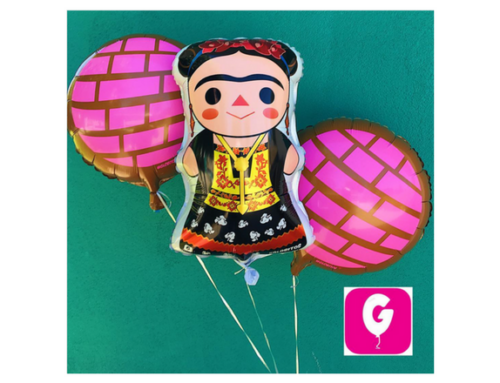If you happened to be riding down Mexico City's Avenida Reforma this month, and you saw a nearly 10-foot tall, semi-nude portrait of an intense-looking woman with long black hair and a serious, slightly mysterious expression, you probably encountered Martha Ortiz Chapa, owner and executive chef of Dulce Patria.
The photo is part of a breast cancer awareness campaign called “Tócate”; Ortiz was one of 15 Mexican women—and the only chef—to be photographed in the nude. Though Ortiz has not had a personal experience with breast cancer, her participation in the campaign, organized by Estée Lauder, reflects her commitment to social good, especially with issues that affect women.
“I love to tell stories,” she says, “and each month, my menu changes to tell a new story.” This October, she's been featuring a pink menu, "Pintado de Rosa," which she designed especially for Breast Cancer Awareness Month. "Tú cuerpo, único e irrepetible, es la mejor receta,” reads the opening line of “The Pink Menu. Translated, this means "your body, unique and extraordinary, is the best recipe."
Passion and courage are two of Ortiz's most prominent qualities. Once one of the city's, if not the country's, most celebrated chefs, Ortiz's professional future was uncertain when she was forced to close her previous restaurant, Aguila y Sol, in 2008.
“The government closed it,” says Ortiz when we sit down together. Though she went on to win a judgment against her that the restaurant did not have enough parking, it was a two year process that took a financial and emotional toll. "I lost everything in life except my heart and my soul to start over. And during the same period, my father was very ill. In the mornings, I was with lawyers; in the nights, I was in the hospital. It was a horrible and difficult situation for me. But I learned a lot, too.”
How did she start over? “Work and work and work. Alluding to the closure of Aguila y Sol being a punishment by the government for her political beliefs, she explains that she named the restaurant Dulce Patria, or sweet homeland, because "Mexico is much more than its politics, much grander than its government." Dulce Patria's logo, a woman on a horse, feels more than symbolic, as that woman seems to be Ortiz, herself. Opening an alta cocina restaurant during the middle of a global financial crisis after losing everything is definitely a phoenix-rising-from-the-ashes kind of move.
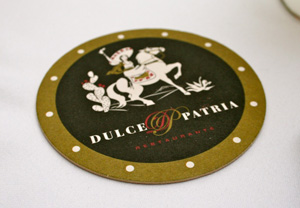
When I ask about the economics of running a haute restaurant in Mexico City, especially one known for devoting exceptional detail to every element of the restaurant experience, Ortiz laughs and says, “I have a brother who's a banker, who lives in New York, and he asks me, 'How much money are you making?' with a raised eyebrow. I don't choose to be a banker. I don't want to have an MBA, like my brother. But… we are living, and I wouldn't trade that for money."
"The motive of a restaurant," she continues, "isn't to make money…. I have ambitions that are much more profound: to educate, to be known for my cooking, to be known as a woman in the kitchen." A woman, she points out, "among many, many men." She is also conscientious about her country's ongoing struggle with poverty. "I am very happy when [my employees] take home a good tip and a good salary,” she confides.
Ortiz's concerns about the community, about Mexico and the preservation of its culture and traditions, may not be evident to Dulce Patria's diners, but they are present in everything she does. The chairs, textiles, and dishes in the restaurant are all made by Mexican artisans. Ortiz's menus draw inspiration from an impressive range of sources: opera and the visual arts; her insatiable reading habit; Mexican women whose lives have influenced Ortiz, among them Sor Juana Inés de la Cruz, Frida Kahlo, and the many home cooks of the Mexican state of Michoacan who she calls "the queens of cooking. ” She cherishes the rural states of Mexico, and the ingredients and cooking techniques that have disappeared from haute menus.
“I want to tell Mexican stories through food,” she says, “and this is an incredible moment to do that. We're all in a period of rescuing our own cuisine. Now, everyone loves what Enrique [Olvera] is doing at Pujol, or what I do, or what [Rene Redzepi is doing at] Noma; we're carrying our flag… I feel extremely proud of Mexico's traditional cuisines, of being Mexican, of being a woman, and of being a chef.”
As Mexico City's A-list chefs start expanding their brands beyond the city—and beyond the country—Ortiz has two big projects in the works. One is an ongoing collaboration with Laura Esquivel, author of Like Water for Chocolate, which will ultimately result in a book offering life advice that a grandmother would give to her granddaughter through cooking. Ortiz's other project is even more intriguing. In 2013, she intends to turn the traditional notion of a cantina on its head.
“It will be a cantina, but from the perspective of women,” she explains. “I'm going to put photos of my heroines on the back of every chair. Everything will be made by local artisans-even the salt shakers. I'm not afraid of femininity and sensuality,” she says. “I believe the purpose of my life is to share beauty.”
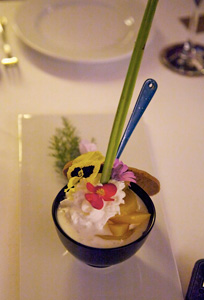
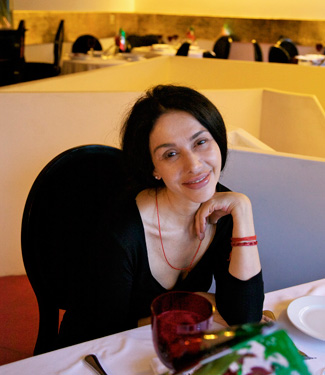

![Making Mealtime Matter with La Familia: Easy Sofrito [Video]](https://thelatinkitchen.com/wp-content/uploads/2015/10/sofrito-shutterstock__0-500x383.jpg)
![Easy Latin Smoothies: Goji Berry Smoothie [Video]](https://thelatinkitchen.com/wp-content/uploads/2015/12/goji_berry-shutterstock_-500x383.jpg)
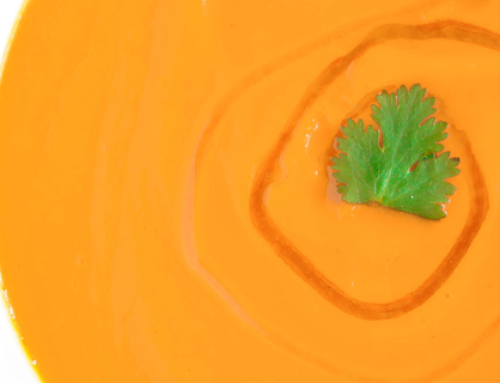




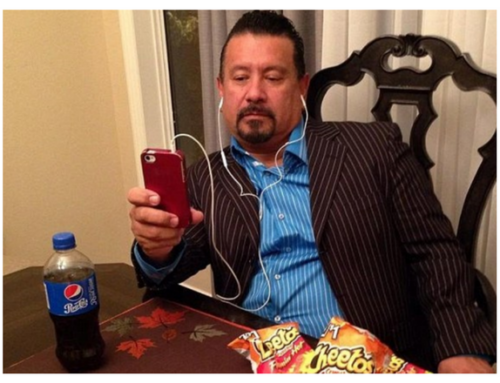
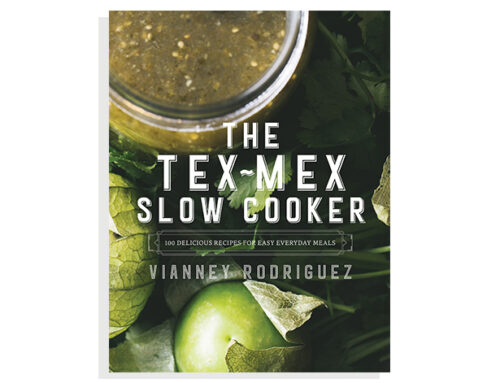
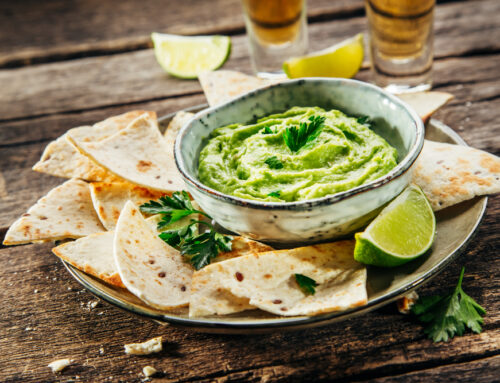

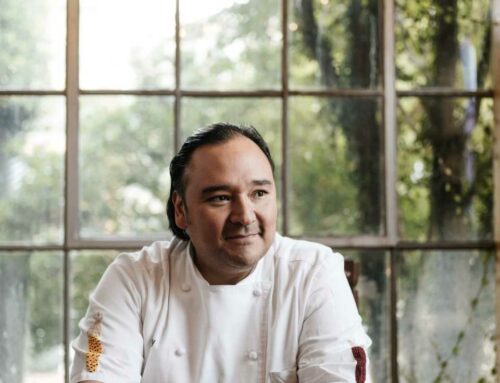

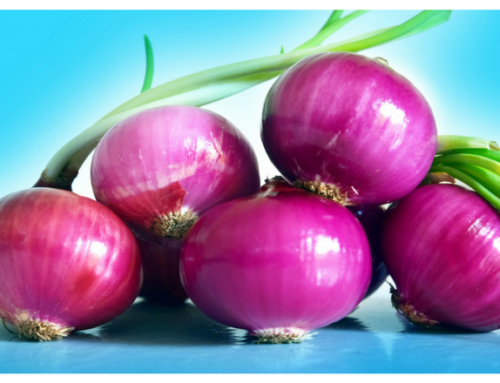




![Fun and Fast Recipes: Fiesta Cabbage Salad [Video]](https://thelatinkitchen.com/wp-content/uploads/2015/11/fiesta_cabbage_slaw-shutterstock_-500x383.jpg)
